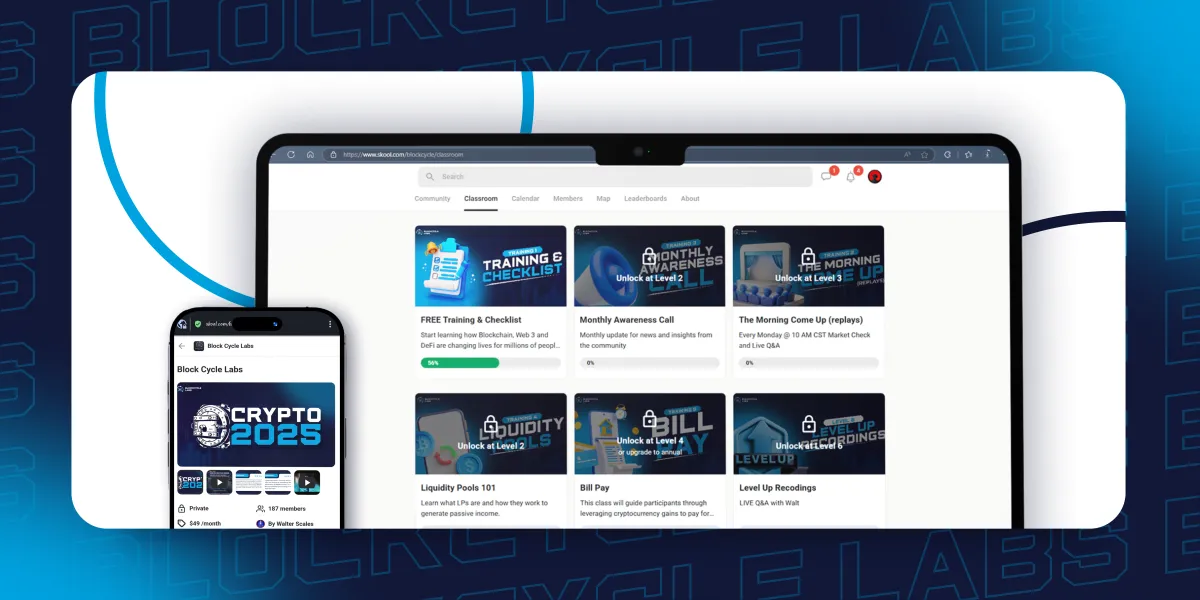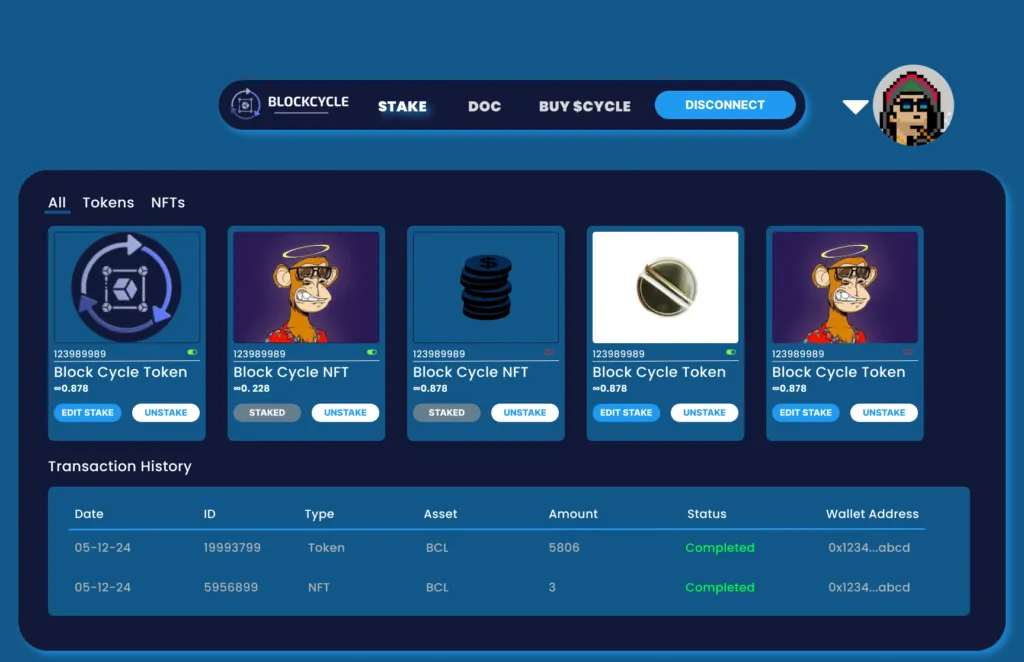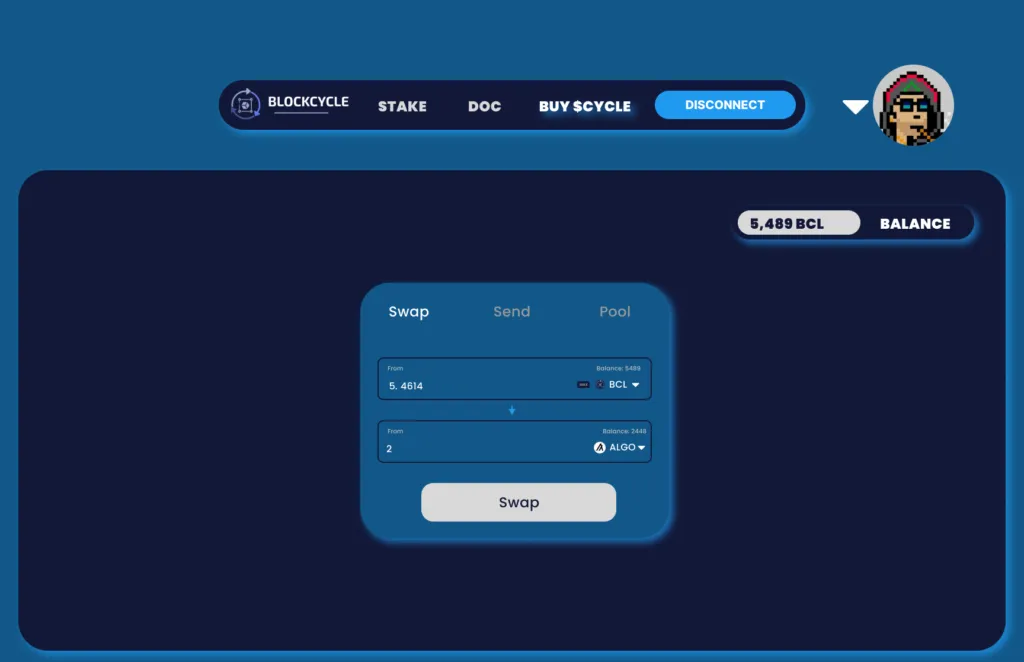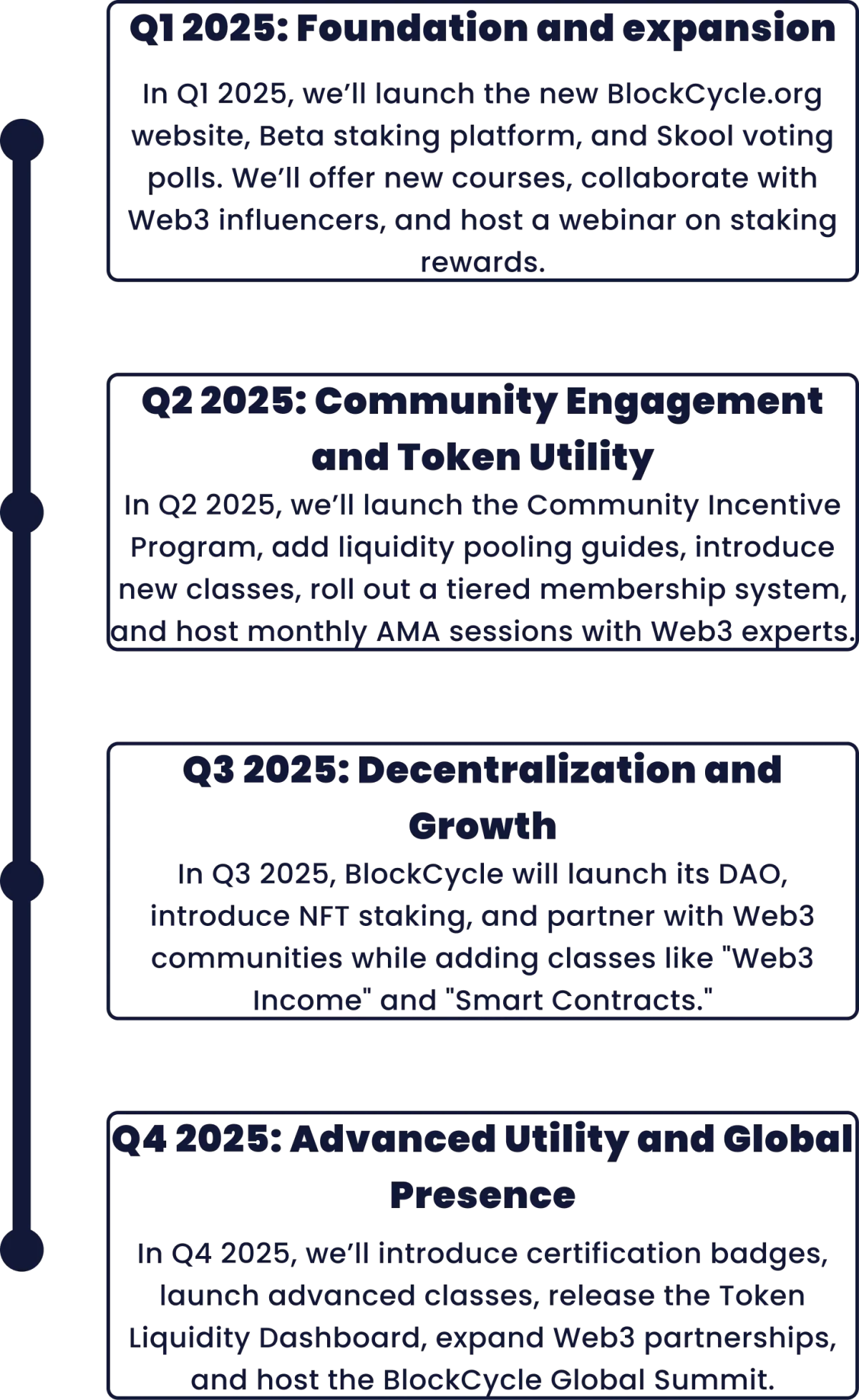Unlocking Financial Freedom with Crypto & DeFi Strategies
Since 2024


Building Blocks of Your Financial Future
From the basics to advanced strategies, we empower you with the knowledge to make informed decisions in the DeFi space
Why Choose Block Cycle Labs
We provide comprehensive, beginner-friendly training and resources to help you confidently navigate the world of Decentralized Finance.
DeFi Education
Financial Freedom
Community Support
Your Money, Your Rules
At Block Cycle Labs, we believe in empowering individuals through financial education. A core element of this is understanding how to 'Be Your Own Bank' using DeFi.
You can leverage decentralized technologies to control your funds, participate in lending and borrowing, and build a more resilient financial future.

Leverage
Access capital without selling your crypto assets

Passive Income
Lend out funds and earn interest

Be in Control
Move away from traditional financial systems
Invest and Stake Crypto & NFTs
Connect Your Wallet & Earn a Take by Staking Your Crypto Assets!

Be Your Own Bank
Learn how to achieve financial freedom by investing in real assets with exponential yields.

Swap, Send, Pools.
Swap and send cryptocurrencies from wallets to wallets.
Join liquidity pools and earn returns daily.
Roadmap

What Community Members Have to Say
Take a quick glance at our community members wins in terms of their crypto learning and earning journey.
Frequently Asked Questions
How Do I Opt-in to Block Cycle?
Start by signing up to the Block Cycle community, then navigate to the classroom where you will find the checklist video. The first thing you will have to do is to connect your wallet and opt-in to Block Cycle token and start receiving rewards token.
Lending pools vs liqidity pools?
A lending pool allows users to lend or borrow assets, earning interest or paying fees, while a liquidity pool provides funds for decentralized trading by pairing assets, enabling swaps and earning transaction fees.
How many pools pairs with block cycle?
There are currently 72 pairs of liquidity available on the Cycle Token, offering users opportunities to trade, stake, and earn up to 120% APY within the ecosystem.
Traditional vs tokenized real estate?
Traditional real estate requires full ownership, while tokenized real estate offers fractional ownership, lower costs, and faster transactions.
Join our Newsletter
Stay up to date on all the latest news about crypto and DeFi.
Need Help?
Get in touch by clicking the Contact Us button

Quick Links
Resources
You can connect with these wallets
©2025 Block Cycle Labs. All rights reserved